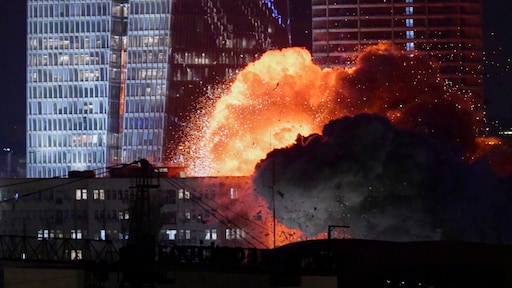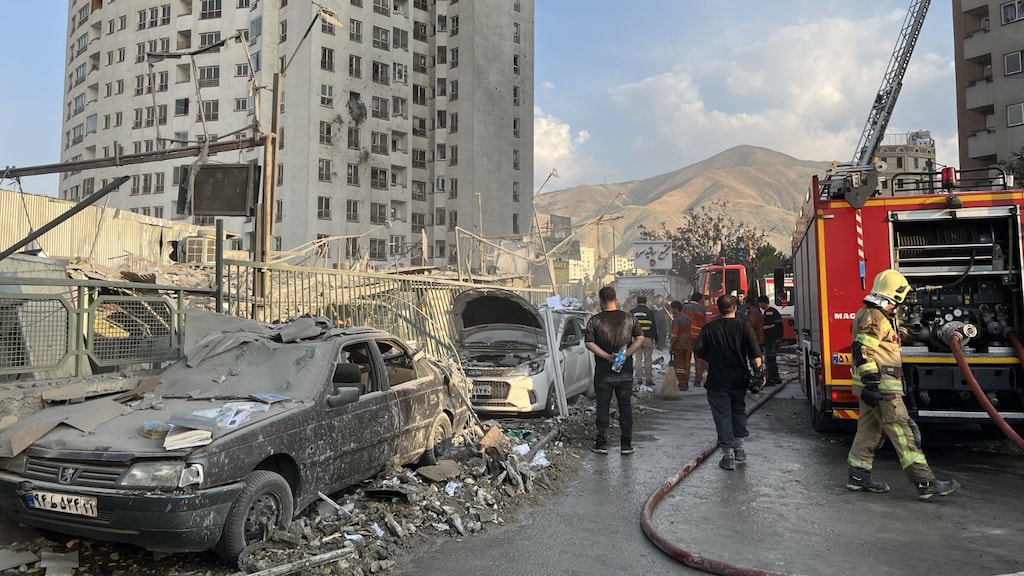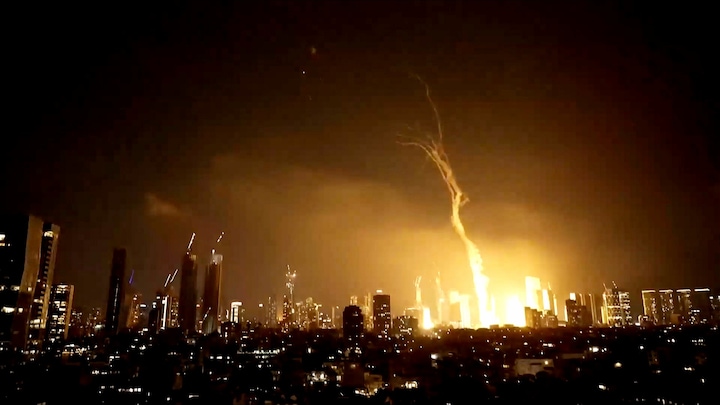Looming Iran-Israel War: Tensions Rising Rapidly in Region


Tensions in the region are rising rapidly following Israeli airstrikes on Iran’s nuclear program. Iran sees the attacks as a declaration of war and promises revenge. How does the rest of the Middle East respond?
After the Israeli attack, Iran raised a red flag over the Jamkaran Mosque in Qom, south of the Iranian capital Tehran. In the Shiite faith, the official religion in Iran, this refers to an act of revenge. And indeed, a few hours after the Israeli attacks, Iran sent 100 drones into Israel and fired missiles into Tel Aviv.
"If these attacks continue, the situation could develop into an open war between Iran and Israel," says RTL News Middle East reporter Floor Brands. "Both countries have direct influence and allies throughout the Middle East."
One of the most important players in the Middle East are the Gulf States. Bahrain, Qatar, Kuwait, the United Arab Emirates and Oman are home to large US military bases. This makes them potential targets for Iran.
Iran has already warned that if the US or Israel attack Iran, these US bases will suffer.
The Gulf States are therefore balancing on a geopolitical tightrope. "The US was aware of the attack. With that, Iran sees the US as an accomplice," says Brands. "But I wonder whether Iran will actually do that. With an attack on the US in the Gulf States, Iran makes new enemies," Brands explains.

According to Middle East expert Thomas van Gool of peace organization PAX, Iran's neighbors have no interest in a war with Israel. "Moreover, many countries have been working for years to improve their relations with Israel."
The surrounding countries will therefore remain aloof if it comes to that, says Brands. Syria sees both Iran and Israel as enemies: Iran because it supported the regime of Bashar al-Assad for years in its war against its own people, and Israel because it has taken Syrian territory. "The country is largely destroyed and has hardly any military forces after 14 years of civil war."
Yet something seems to be shifting. There is renewed talk of a peace agreement between the new rulers in Syria and Israel.
From Lebanon, an attack on Israel could be launched by Hezbollah, a strategic ally of Iran. But that scenario seems unlikely at this point.
"After heavy Israeli attacks in late 2024, Hezbollah has been seriously weakened," says Van Gool. "The organization is struggling with logistical problems, among other things. The weapons routes via Syria have been virtually closed since the fall of the regime there."
And in Iraq, too, Iran has influential allies, such as Hashed al-Shaabi and Al-Nujaba. Their options for intervention are limited. "In theory, they could deploy long-range missiles or drones," says Van Gool. "But I don't see that happening anytime soon. Israel has superior military power and the militias have little to gain. On the contrary, they risk a brutal retaliation."
Jordan has had peace with Israel since 1994 through the Wadi Araba Agreement. The country does not want war and therefore stays out of the conflict between Israel and Iran as much as possible.
"Jordan is acting independently," says Van Gool. However, the kingdom is not completely aloof. "I wouldn't necessarily call them neutral," says Van Gool. "Iranian drones that try to fly to Israel via Jordanian airspace are actively intercepted by the Jordanian army."
"Apart from the Houthis in Yemen, Iran has little clout in the region," says Middle East reporter Brands. "It seems that Iran will stand alone in the looming war."
RTL Nieuws




%3Aformat(jpeg)%3Abackground_color(fff)%2Fhttps%253A%252F%252Fwww.metronieuws.nl%252Fwp-content%252Fuploads%252F2025%252F06%252Fzwembad.jpg&w=3840&q=100)


%3Aformat(jpeg)%3Abackground_color(fff)%2Fhttps%253A%252F%252Fwww.metronieuws.nl%252Fwp-content%252Fuploads%252F2025%252F06%252Fvakantie-scooter-1.jpg&w=3840&q=100)
